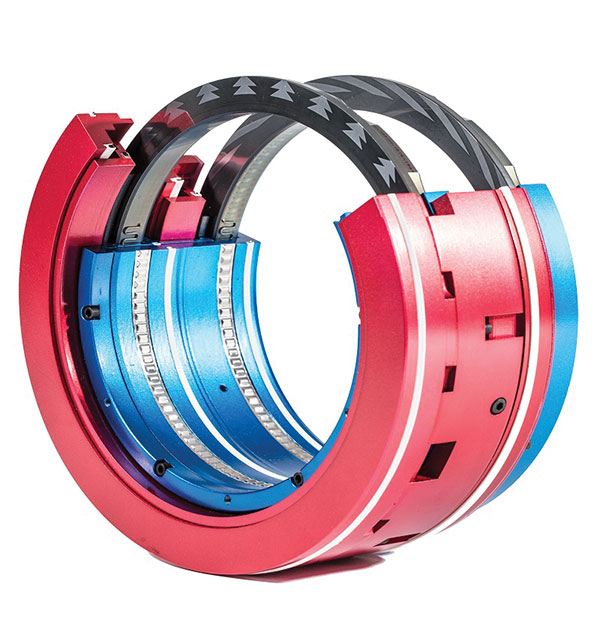December 2018, Vol. 245, No. 12
Tech Notes
Gas Seal Technology Designed to Reduce Methane Emissions
John Crane, a provider of rotating equipment solutions, recently launched its latest gas seal technology designed to be retrofitted into centrifugal compressors with oil seals to reduce methane emissions up to 95% while improving reliability and lowering operating costs.
The Aura 120 Narrow Section gas seal enables the latest John Crane gas seal technology to be fitted into a larger percentage of older equipment, bringing with it the benefits of non-contacting design. Gas seal technology eliminates the need for oil lubrication associated with contacting seals and the resulting need to address harmful emissions entrapped in the oil. In the natural gas sector, centrifugal compressors equipped with oil seal technology are generally acknowledged as the leading source of methane emissions offshore and the fourth most significant onshore.
“Our expertise in this area has recently led to the development of a lifecycle cost calculator (LCC) that provides a full analysis of the economic case for retrofit from oil seals to gas seals against the next best alternatives,” said John Crane Global Product Manager Paul Hosking. “Gas seal technology is proven to reduce the level of damaging methane emissions that are vented or flared into the atmosphere.”
John Crane’s LCC takes operational data from rotating equipment and compares the total lifecycle costs of the oil seal operation ― including emissions ― with the option of capturing the methane and routing to a flare device, capturing the methane and routing for another purpose, and retrofitting to gas seal technology.
John Crane identified four typical scenarios where oil seals are still in use and examined the economic benefits. In all scenarios, converting to gas seal technology provides economic payback, particularly when there is no spare compression and the operator owns the natural gas flowing through the compressor.
Earlier this year, John Crane was invited by a United Nations (U.N.) panel to showcase how the firm’s technology is reducing methane emissions in sectors of the natural gas industry. The panel is examining the critical role gas will play in achieving the international organization’s sustainable development goals.
The U.N. group provides a forum for multi-stakeholder dialogue on sustainable and clean production, distribution and consumption of natural gas in the United Nations Economic Commission for Europe (UNECE) region. It established a taskforce to develop best practice guidance on reducing methane emissions along the gas value chain. P&GJ






Comments